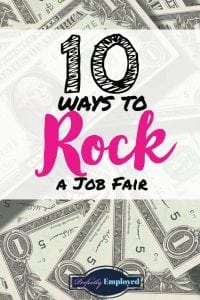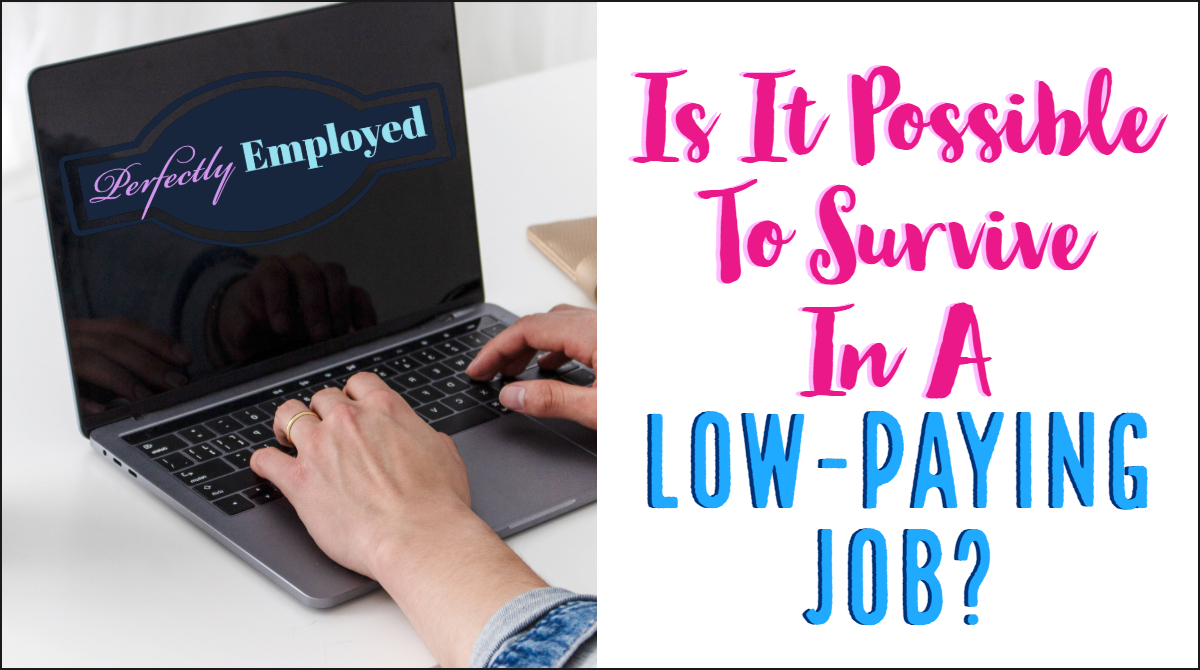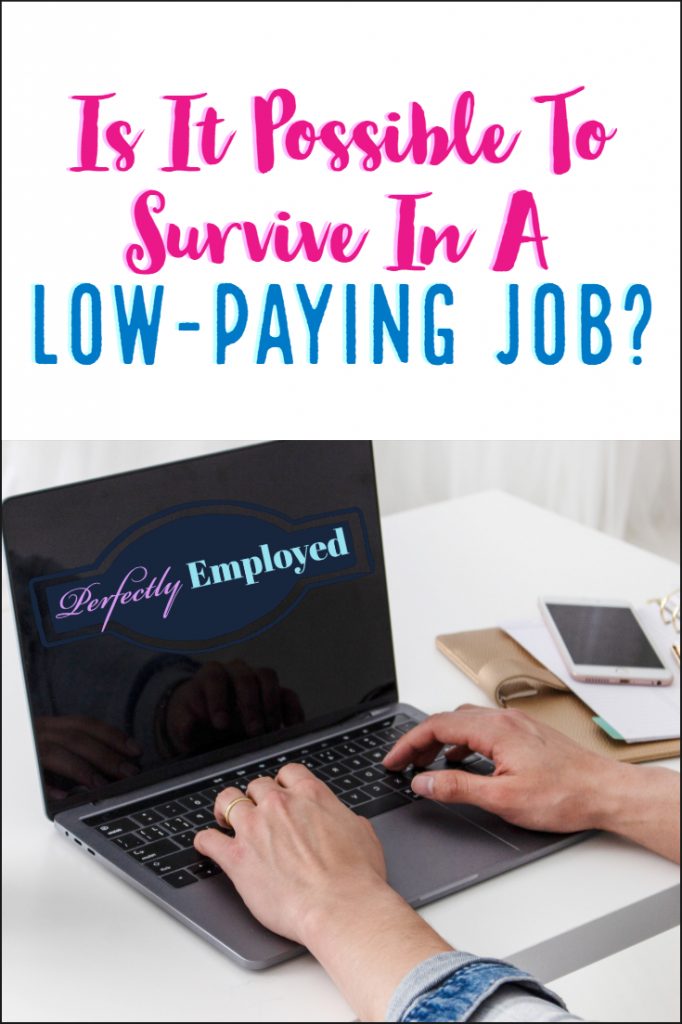Job fairs are loud, crowded hiring blitzes where after awhile, most every applicant starts to look the same to employers. If you want to walk out of a job fair with a job—or at least an interview—you have to stand out from the crowd and show potential employers that you’re the perfect person for the job.
Here are 10 ways you can make the right impression and maximize your job offers:
1. Research the Companies You Know Will be at the Job Fair
Start preparing for a job fair by looking at the list of companies that will be at the fair. Google each company and look at what they do. Look at their LinkedIN pages and see who works there, and what their job titles are. Decide which companies best suit your career goals, and learn as much as you can about those companies.
If you’re looking at big, national or international corporations, spend some time learning about the company’s history and who their customers are. Larger companies usually have an online employee manual or benefits website so you can research what a potential offer package might look like. The more information you have, the better.
You want to know enough about a company to be able to speak intelligently with their representatives at the job fair. The last thing you want to do is show up to the job fair without any knowledge of the companies represented there, and then ask, “oh, what do you do?”

2. Make Sure Your Resume Isn’t Boring
If you’re still using the standard MS Word template to make your resumes, it’s time to make a change—right now. Job fairs are full of candidates that show up with a stack of black-and-white, text-only, boring resumes and hand them to every company they see. Be ready to stand out in that crowd.
You can buy resume templates inexpensively on Etsy. Look for a colorful template that has spaces to highlight your skills and professional profile.
[bctt tweet=”Avoid the “objective” line on your resume because everyone at a job fair has the same objective: to get a job.”]
If you are applying for jobs in two or more different industries, make sure you have separate resumes for each industry. Each industry has specific keywords, so make sure your resume addresses them.
3. Prepare Your Elevator Speech
You need a 30-second pitch, or “elevator speech” ready for the job fair. In such a crowded space, you have to make an impression quickly. You won’t have a lot of time to convince the company representatives that you’re the right person for the job, so your best bet is to have a speech prepared.
The best elevator speeches highlight your qualifications as well as your knowledge of the company. You are trying to show that you’re extremely talented, confident, and a perfect fit for the company’s needs.
Here’s a template to get you started. Fill in the blanks and make it your own. Note that you should really prepare a few of these so you can customize them based on the company and industry you are trying to impress:
Good morning! I’m ________ and I am excited to meet you. I’ve followed your work on _______ for years, and I find it inspiring/exciting/amazing. I’m a __________________ with _____ years of experience creating __________. Like you, my work _______________. I have achieved _______________. I would love to talk to you more about your work and how we might collaborate in the future when you have time. Here’s my resume/business card. Let’s connect on LinkedIN, too.
Make it your own, but the goal is to show that you rock, you’re knowledgeable about the company, and you see yourself as an asset. You’ve got this!
4. Dress to Impress, and Remember Your Pop of Color
One of the first things employers will notice about you is how you dress. This isn’t the time to choose comfort over fashion. Wear your favorite power suit or dress.
No matter what you choose to wear, make sure you have a pop of color. If you wear a grey or black suit, wear a colorful scarf or camisole. Draw attention to your face with color.
You want to be memorable. You’re more likely to be remembered if a person can associate you with something you wore. Colorful accessories help you stand out in the right way.
When we go to job fairs and conferences, I typically wear a royal blue or purple dress with nude pumps. These are colors that work for me, but you likely have your own color palette that works for you. The worst thing you can do is dress in all black or another neutral color. You’ll blend in too much with everyone around you.
5. Be Conscious of What You Carry
Don’t be the person who drops a bunch of papers everywhere when she goes to shake hands with a potential employer. Don’t be the person fidgeting with her car keys while talking with a recruiter. Think ahead about what you are going to take with you into the job fair.
You will need a place to put brochures and business cards as you receive them from your new contacts. You also need something to write on, and a place to keep your resumes flat.
I use a leather portfolio when we attend business meetings. Something like this will work:


It has a pocket on the right for keeping resumes straight, a notepad for taking notes, and a smaller pocket for stashing business cards and brochures.
On top of this, I usually carry a small purse for my wallet and car key. Look for a purse with a shoulder strap. You always want to have one hand free for shaking hands. It makes you seem approachable.
A simple, black folder from the dollar store works better than nothing, so if you’re short on cash, use that as your back up. Make sure it doesn’t say anything on it. Nothing is more unprofessional than folders that say “Trapper Keeper” or have psychedelic Lisa Frank unicorns on them.
6. Use Your Time Wisely: Target 5 Companies
Depending on the type of job fair, there could be as many as 200 companies ready to meet potential applicants. You should have five companies in mind when you walk in the door. Talk to those companies first before you turn your attention to other potential employers.
It’s better to make five excellent impressions than 100 half-hearted ones. Focus on your favorites, and then walk the fair with an open mind. You never know when you’ll see a potential employer you overlooked that might be a perfect fit.
7. Smile and Offer Your Hand for the Handshake First
When you approach a company’s table at the job fair, smile at the representatives and extend your hand for the handshake first. This shows that you’re confident and someone they definitely want to get to know.
After the handshake, you can lead the conversation with your elevator speech and see where it goes. Even if you’re nervous, smile and be engaged with the company’s representatives.
8. Ask the Right Questions
A job fair is a good time to “feel out” a company to see if they’re a good fit for you, so make sure you have a good list of questions to ask. The right questions are ones that are focused on how your goals and the company’s goals might align. This isn’t a time to ask about vacation time and medical benefits, but instead ask about what the company’s goals are for this year, and how they’re measuring success. Try questions like:
- I read about your XYZ project on your website. It sounds fascinating! How are working towards that goal?
- There seems to be a lot of potential to _______ in this field. How is your company approaching it?
- I would love to learn more about how your company is achieving __________ this year. What steps are you taking?
If you have time, you might also ask the representatives what their favorite thing about working for the company is. The answers to this question will tell you a lot about the company.
9. Always be Closing
Keep your eye on the prize. You are at the job fair to make connections, land interviews, and receive job offers. Keep that in mind with every conversation.
If the representative isn’t scheduling an interview or saying they’ll be in touch soon for one, you should approach the topic yourself. Ask, “Is there a good time we can connect in the next week or so to discuss the position?”
Try to nail down a time to chat, or at the very least, try to get the name of the hiring manager, if he’s not present at the job fair. You want to walk away with something firm, not just, “we’ll be in touch if we’re interested.”
10. Send Follow-up Emails the Following Day
When you leave the job fair, you will have a good idea which companies you want to work for and which you don’t. Even so, you should send follow up emails to the people who took the time to talk to you. Thank them for their time and tell them how great it was to meet them. Ask to connect with them on LinkedIN and to keep you in mind if they see a position that suits your skill set.
Make sure to ask for business cards or contact information if it’s not offered to you. Job fairs are excellent places to network, so even if you don’t walk out with a job, you should at least walk away with a dozen or more new contacts for your network.
Save to Pinterest












